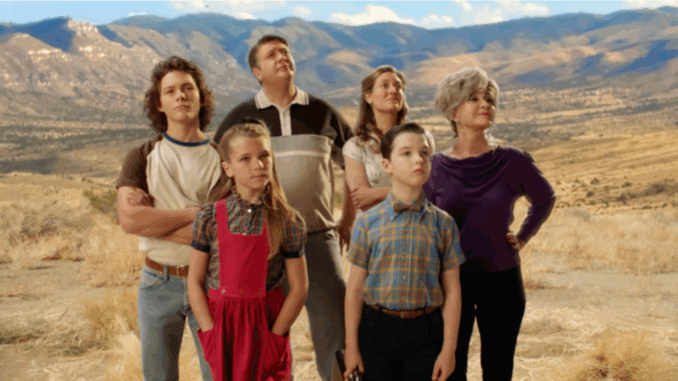
As Young Sheldon wrapped up its run, fans and critics alike acknowledged how the series evolved into something far more emotional, layered, and fulfilling than its early episodes suggested. Originally seen as a lighthearted Big Bang Theory prequel, the show gradually carved out its own identity. Here’s how Young Sheldon improved dramatically as the seasons progressed.
1. Developed Into a True Family Drama
In its early days, Young Sheldon leaned heavily on Sheldon’s quirks for comedy. But over time, the show shifted into a heartfelt family dramedy, giving more weight to the Coopers’ personal struggles, relationships, and triumphs. It became more about the family as a whole than just young Sheldon.
2. Gave Supporting Characters More Depth
George Sr., Missy, Mary, and Georgie started as side players to Sheldon’s story. Later seasons explored their ambitions, heartbreaks, and conflicts, allowing each of them to stand out. For instance, Missy evolved from comedic relief into a layered teenager dealing with real emotions.
3. Humanized George Sr.
One of the most notable improvements was the portrayal of George Cooper Sr. Originally hinted at in The Big Bang Theory as a careless and distant father, Young Sheldon gave him complexity and depth. Lance Barber portrayed George as a flawed but loving father, and the character became one of the show’s emotional cores.
4. Balanced Humor with Emotion
As the series matured, it found the perfect balance between its trademark humor and genuine emotional storytelling. Episodes tackled serious topics like grief, religious conflict, parental pressure, and identity, all without losing the warmth or wit that defined the show.
5. Improved Sheldon’s Relatability
While Sheldon was often portrayed as intellectually arrogant early on, the series made a conscious effort to make him more sympathetic. We saw his loneliness, anxiety, and longing for connection, which helped viewers understand what made him who he is in The Big Bang Theory.
6. Stronger Continuity with The Big Bang Theory
Later seasons paid more attention to tying in with The Big Bang Theory‘s lore. From George’s impending death to Sheldon’s growing scientific interests, the writers planted seeds that helped the two shows feel connected while still letting Young Sheldon stand on its own.
7. Elevated Visual Style and Direction
The production quality noticeably improved, with more dynamic camera work, richer set designs, and more polished editing. This evolution in direction helped elevate emotional moments and added polish to the show’s comedic beats.
8. Used Adult Sheldon’s Narration More Effectively
Initially, Jim Parsons’ narration as adult Sheldon was used mostly for exposition and comedic contrast. Over time, it became a tool for deeper introspection and emotional resonance, especially in later seasons when reflecting on George Sr.’s arc.
9. Introduced Meaningful Guest Stars and Cameos
As Young Sheldon progressed, it featured appearances and voiceovers that delighted Big Bang fans. Cameos by Simon Helberg (Howard), Mayim Bialik (Amy), and others gave a satisfying sense of continuity and nostalgia.
10. Built Toward a Bittersweet Finale
Rather than ending on a joke or a random milestone, the show culminated in George Sr.’s death—a moment long foreshadowed. The final episodes were emotional, mature, and gracefully handled. They honored the journey of the characters and set up the transition to who Sheldon becomes in adulthood.
Conclusion: More Than Just a Prequel
Young Sheldon started out as a spin-off driven by brand recognition but ultimately became one of the most emotionally intelligent and character-driven sitcoms of the last decade. Through its evolution, it surpassed expectations and proved that great storytelling can come from even the most unlikely beginnings.
FAQs
1. Was Young Sheldon originally supposed to be a serious family drama?
No, it started as a more traditional sitcom focused on humor, but it evolved organically into a balanced drama-comedy (dramedy) over time.
2. Does Young Sheldon contradict The Big Bang Theory?
In a few minor ways, yes—but the writers made significant efforts in later seasons to align both shows’ timelines and character arcs.
3. Did George Sr. really die in Young Sheldon?
Yes. His death, long mentioned in The Big Bang Theory, is depicted in the final season, adding emotional closure to the series.
4. Will there be more spinoffs after Young Sheldon?
Yes. CBS has greenlit a Georgie and Mandy-focused spinoff titled Georgie & Mandy’s First Marriage set to premiere in 2025.
5. Is Young Sheldon worth watching even if you haven’t seen The Big Bang Theory?
Absolutely. While it enhances the experience for Big Bang fans, Young Sheldon stands firmly on its own as a compelling family series.